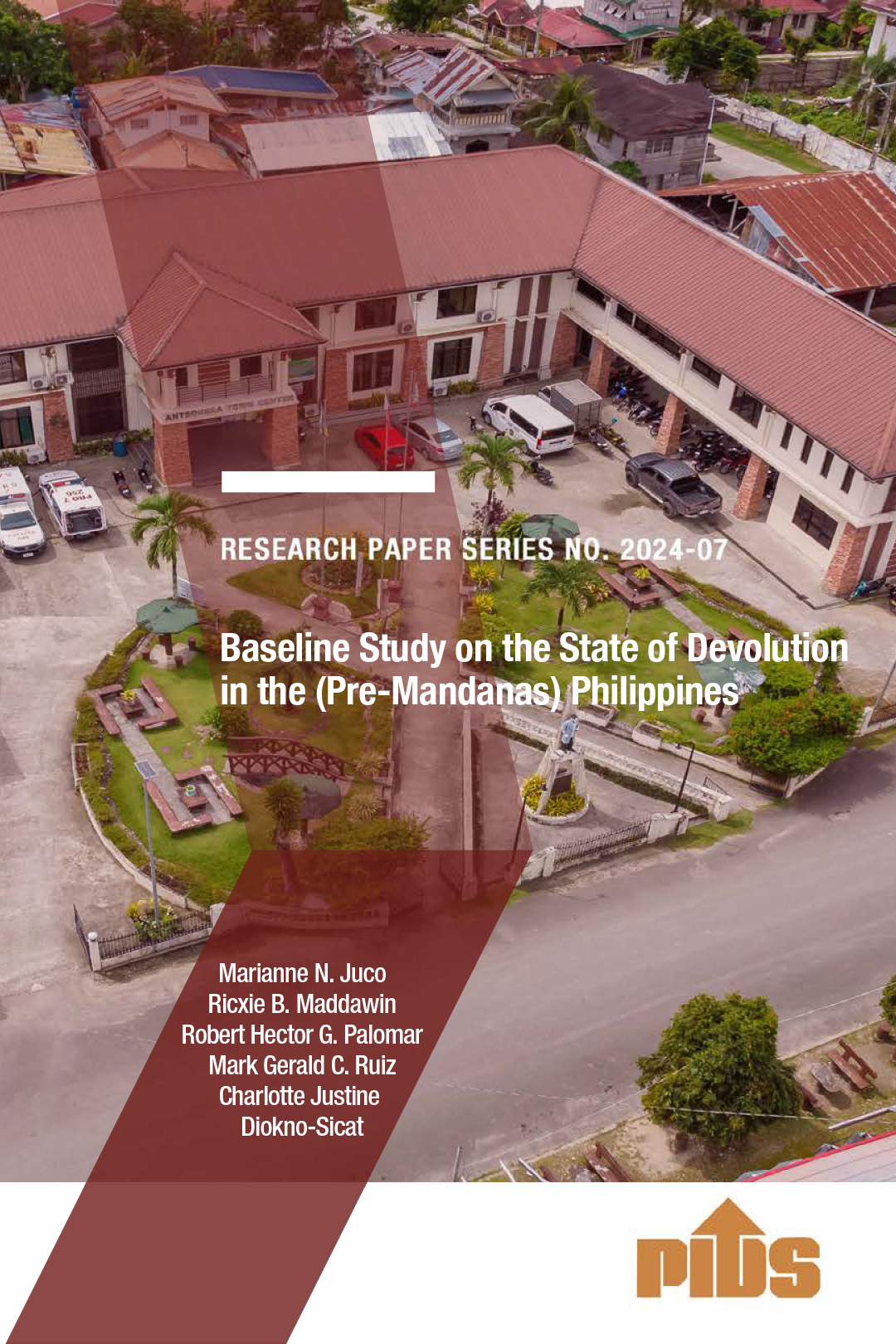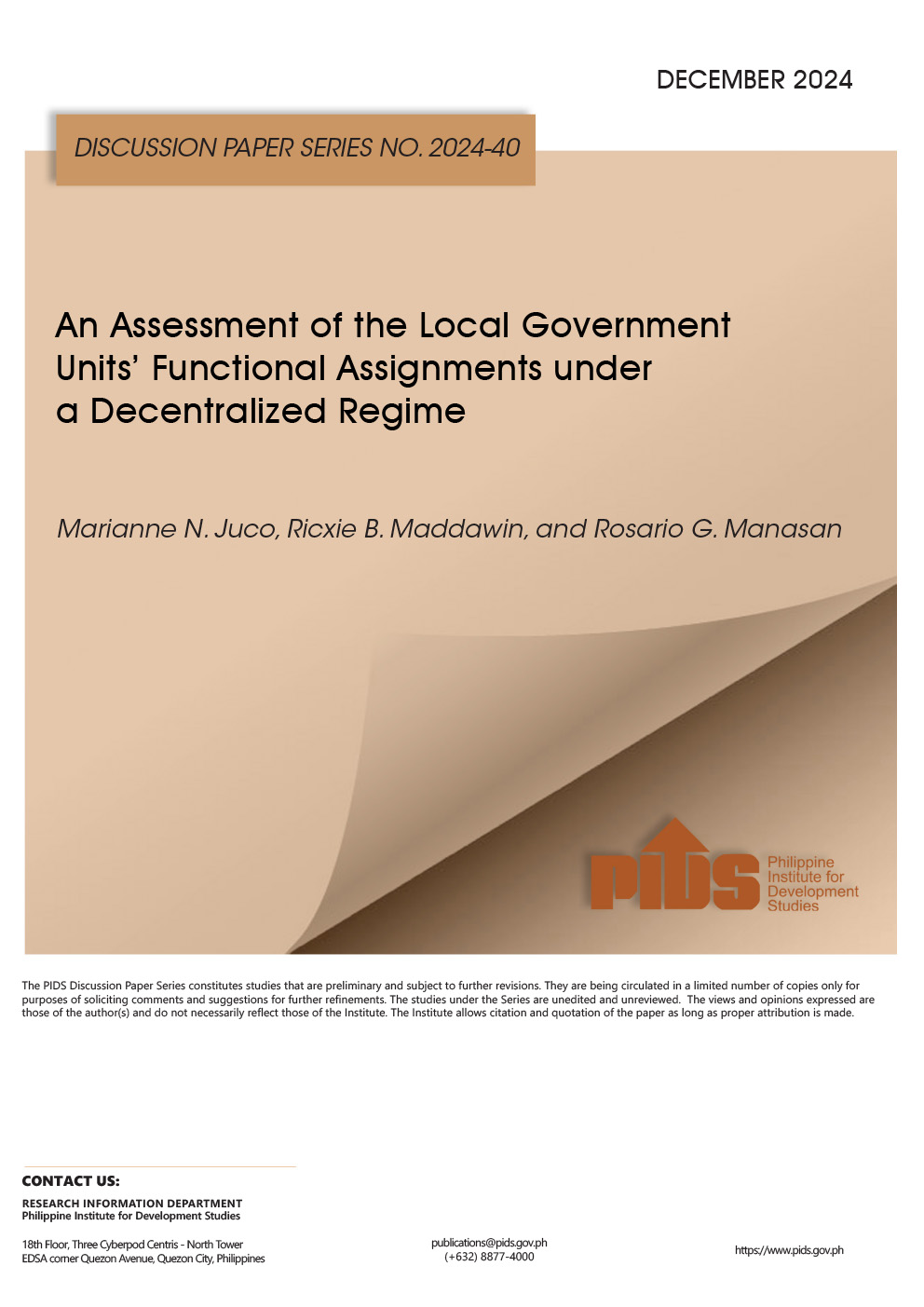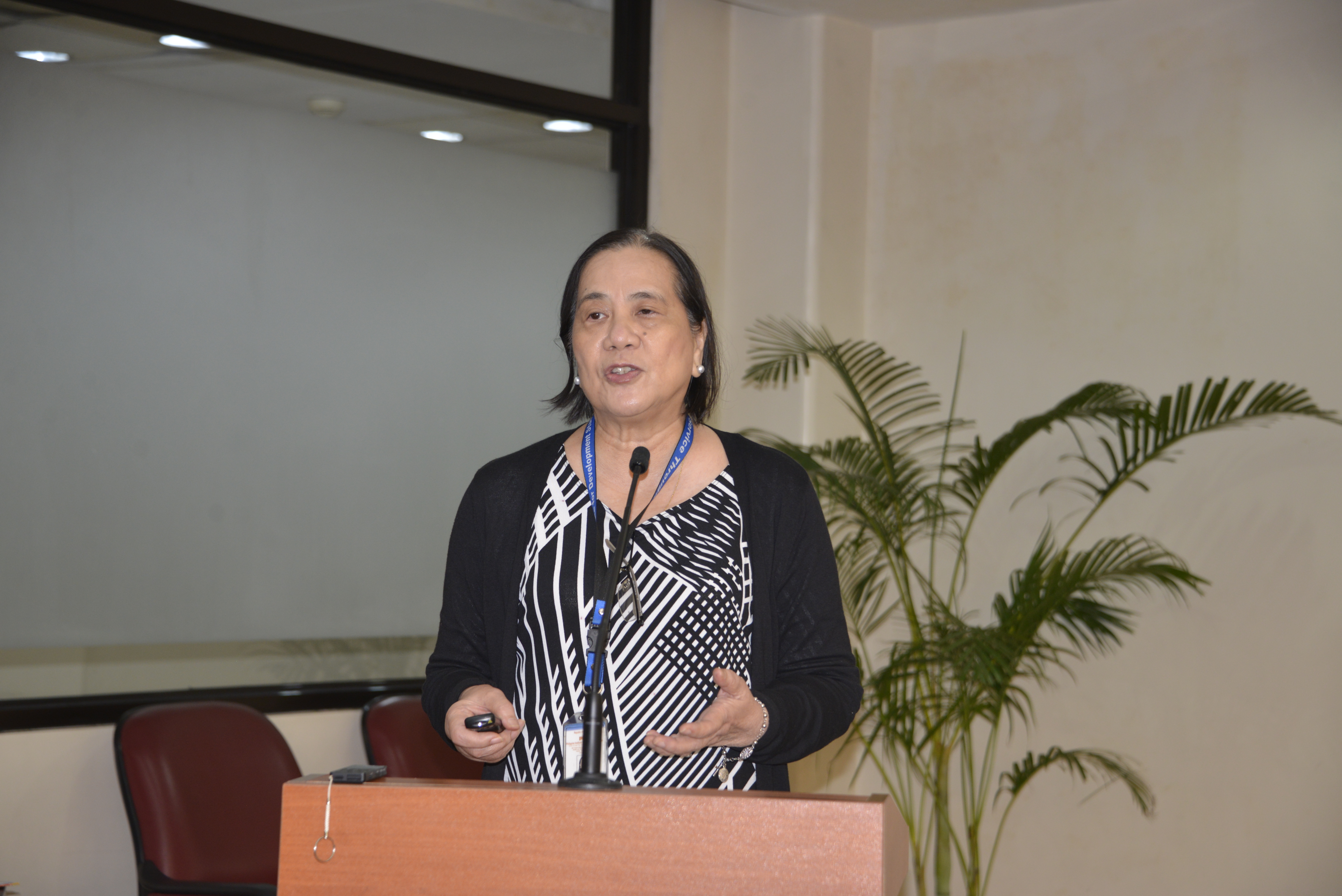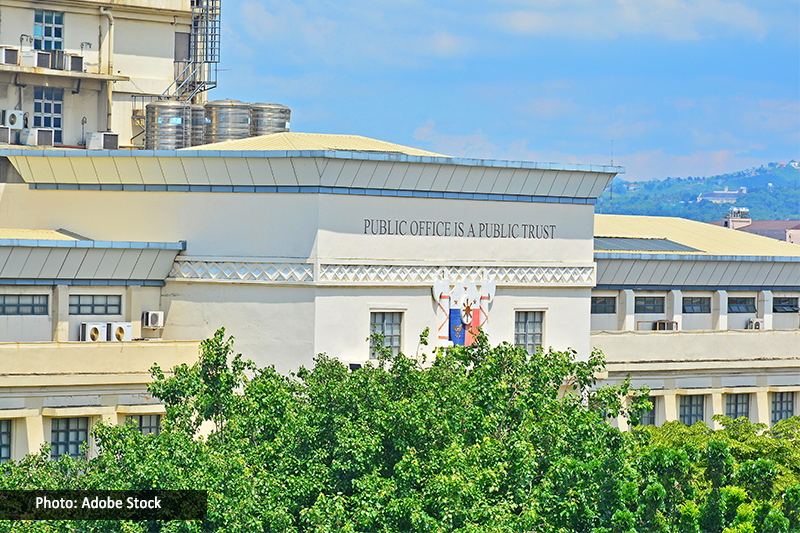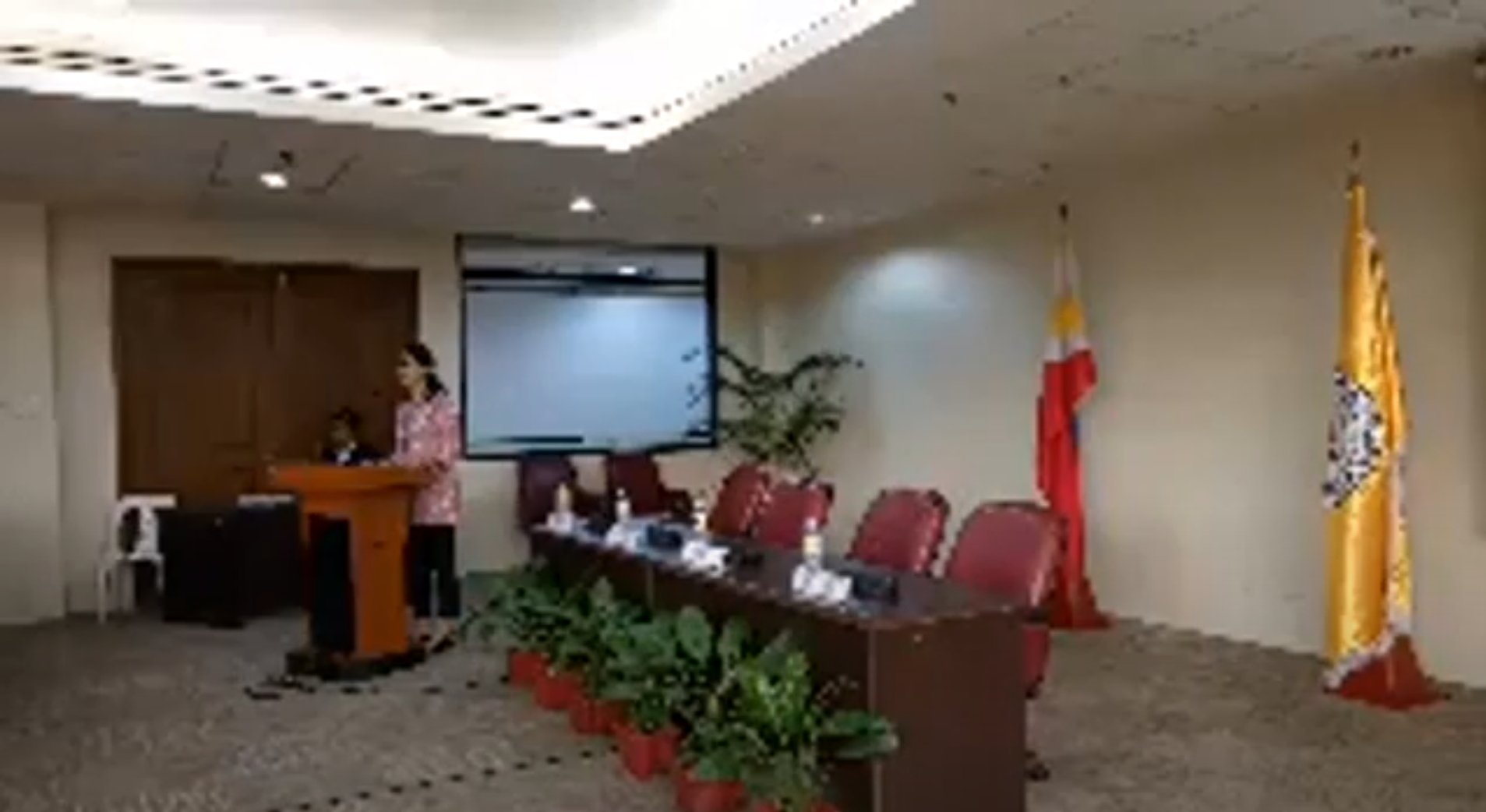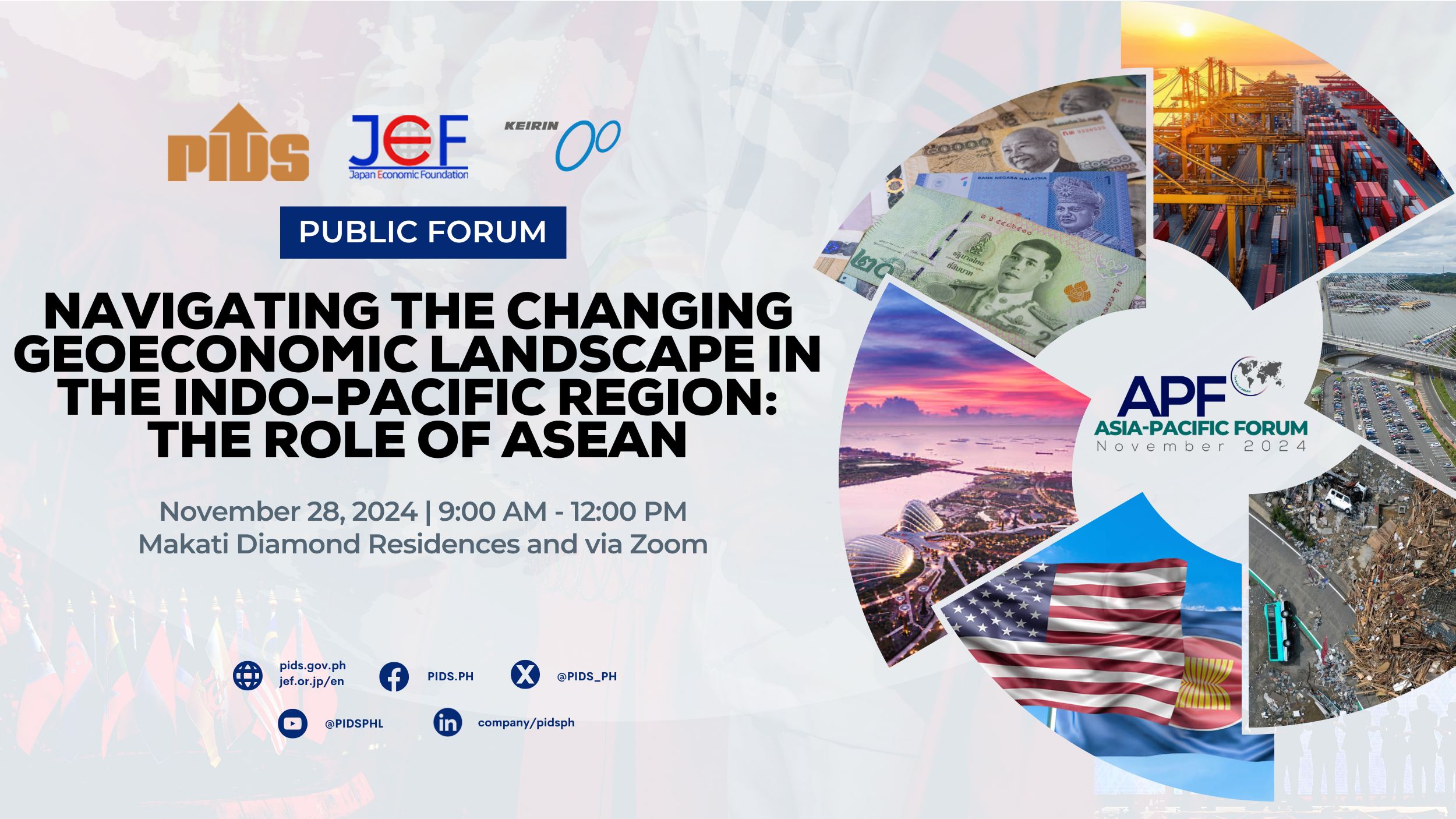If it ain’t broke, why fix it? This is a question some pundits posed when President Duterte started tinkering with the Constitution of the Republic of the Philippines.
The Chief Executive believes—he’s adamant—the country’s problem lies in the way government is formed. And, hence, Duterte advanced that abandoning the unitary form of government in favor of federalism would address perennial poverty and economic inequity.
Not so, say his critics. Some of these critics pointed to a middle ground: just tweak the Local Government Code (LGC) of 1991.
A federalism advocate, however, thinks doing so isn’t enough.
“The antidote is federalism because the essence of federalism is nonconcentration of powers,” retired Chief Justice Reynato S. Puno said in a speech to explain his vote on July 3, the day the Constitutional Committee (Con-Com) he headed for the past six months adopted the proposed federal charter. “In contrast to unitarianism, federalism is not just delegation of powers but equitable distribution of the powers of government between the federal government and the governments of the constituent regions.”
Puno said in an earlier interview with the BusinessMirror that amending the LGC will just perpetuate the unitary system, which he and the President believe provided excessive concentration of power to the national government.
The unitary government, the Con-Com chairman repeatedly said in his speeches, has failed to solve poverty, political dynasties, dominance of monopolies and oligopolies, corruption and lawlessness, among others.
This worldview is now being set in stone as Duterte approved the proposed draft federal constitution on July 9.
Federated regions
THE draft Charter proposed by the 22-member Con-com adopts a federal-presidential form of government, retaining the three main branches for federal government and the bicameral Congress.
The draft charter seeks a total of 18 federated regions: 16 regions that are symmetrical in character—including the Negros Island Region—and two regions that are asymmetrical in character, namely, the Bangsamoro and the Federated Region of the Cordilleras. Each federated region will have its own regional government with executive, legislative and judiciary branches. This regional government supervises the local governments in the region.
There will be a regional governor and regional deputy governor per federated region. These regional government posts are elected as a team from within a regional assembly.
The regional governor heads the regional government, supervises the local governments, appoints executive department and bureau heads and formulates a Regional Expenditure Program. The regional deputy governor presides over the regional assembly.
Regional assembly
THE regional assembly is the legislative branch of the regional government. It crafts regional laws and approves the budget of the region, among others.
The draft Charter provides the Regional Assembly be composed of elected members. Half of the membership represents each province, highly urbanized cities and chartered cities, while the remaining half represents political parties through proportional representation.
The term limit for all these regional government posts was set by the Con-Com to four years. The draft Charter provides that the regional governor and deputy governor serve for four years subject to one reelection, while the regional assembly members will serve for four years and shall not exceed two terms.
As for its regional judiciary, the regional assembly shall provide for a regional Supreme Court, regional appellate court, regional trial courts and such lower courts and special courts in component provinces, cities and municipalities. Their jurisdiction would be defined in accordance with the Constitution.
Exclusive powers
SINCE the Con-com believes that the regions deserve more than “trickles of power,” the federated regions were vested with 15 exclusive powers within their respective regional territory. These include: socioeconomic development planning, creation of sources of revenue, financial administration and management, infrastructure, public utilities and public works, economic zones, land use and housing, justice system, local government units, business permits and licenses, municipal waters, indigenous people’s rights and welfare, culture and language development, sports development and parks and recreation.
But since every federated region now must be economically viable and sustainable, the Con-Com decided to give them power to collect certain taxes and fees.
These include real property tax, estate tax, donor’s tax, documentary stamp tax, professional tax, franchise tax, games and amusement tax, environmental tax, pollution tax, and similar taxes, road users’ tax, vehicle registration fees, transport franchise fees and local taxes and other taxes which may be granted by federal law.
Financial aid
FOR each region to have a steady stream of revenues, a share of not less than 50 percent of all the collected income taxes, excise taxes, value-added tax and customs duties shall be equally divided among them and automatically be released. The remaining 50 percent will go to the federal government.
Also, the federated regions shall be entitled to 50 percent of all net revenues derived from the exploration, development and utilization of all natural resources within their territory.
However, the Con-com admitted there will still be regions that might need financial assistance in their journey from unitarianism to federalism. Hence the committee decided to have an equalization fund equivalent to 3 percent of the annual General Appropriations Act.
The fund will be administered by a 15-man Federal Intergovernmental Commission based on the regions’ need but with priority to those that require financial support, the draft Charter proposes.
Additional finances from the national budget may be provided by the federal congress for the regions so that they will effectively and efficiently deliver government services to their constituents.
Too many
ATENEO de Manila University’s Ronald U. Mendoza notes that federalism is one way to build further on the decentralization under the LGC.
“I believe the Con-Com has also considered federalism as a ‘grand bargain’ that could include deep structural and political reforms that have less to do with federalism, but will be necessary nonetheless for our democracy and our economy to thrive,” Mendoza said in his e-mail to the BusinessMirror. “These include dynasty regulation, as well as reforms on the economic restrictions in our present Constitution.”
However, the AdMU School of Government dean also cautioned about having too many federated regions since it might defeat the objective “of developing new agglomerations that could produce new growth engines across the country.”
“If there are too many regions, it may not be too different from the present setup whereby the country has been parceled into very small pieces, making it difficult to reach economic critical mass and manage jurisdictions with some degree of financial sustainability,” Mendoza added.
But Puno is sticking with the Con-Com’s decision to adopt 18 federated regions since the shift to federalism would be easier if they follow these administrative regions as they are currently constituted.
Albeit he did not discount the objection that a lot of these regions may not be economically viable and sustainable, Puno believes these weak regions can be properly assisted given the exclusive powers that were granted to them. The former Chief Justice also noted other facilitating factors, such as the revenues that were allocated to them coming from the federal government, including the equalization fund and their share on the development of their natural resources, among others.
He added they also included a provision in the draft Charter that gives flexibility to these regions to merge or to subdivide when necessary.
“But, of course, that [merger or subdivision] will be subject to referendum and plebiscite of the affected people.”
Foreign ownership
JOSE Enrique A. Africa, executive director of nongovernment IBON Foundation Inc., believes the Con-com’s draft charter is “not as bad” as the PDP-Laban Resolution 8 charter-change proposals in Congress. Africa believes the latter went overboard by seeking to institutionalize profit-seeking and the market as the main organizing feature of the country’s social and economic life.
A precious few of the committee’s proposals are welcomed by Africa, including the more explicit attention to social and economic rights.
But as a whole, the proposals still diminish the legal basis for responsible State intervention and regulation of the economy that is so necessary for sustainable and equitable development.
“It turns out that mass media, advertising and educational institutions are also opened for foreign investment liberalization [i.e., not just natural resources and public utilities as in the leaked draft],” Africa said in an e-mail.
He added that creating a constitutional backdoor, especially for natural resources and public utilities, “will exploit these for short-sighted profit rather than develop them for long-term national economic development.”
To note, the Con-com decided to allow Congress to liberalize economic restrictions in these areas but maintained the prohibition against ownership of land by a non-Filipino.
However, Africa pointed to the removal in the Con-com draft of a provision in the 1987 Constitution that exclusively reserves investment areas to Filipino citizens.
“The creation of a new constitutional commission on competition is, on the face of it, welcome [as it could] be used against monopolies,” Africa said. “It is, however, biased against economic and administrative regulations that are crucial for managing the economy for strategic development. [The body also] advocates ‘pro-competitive policies,’ which often mean anti-labor and anti-interventionist policies.”
Economic framework
SOME analysts told the BusinessMirror there is no correlation between the form of government and levels of economic and regional development.
But Africa said there is no reason to believe this argument for federalism, noting that the proposed changes to economic provisions even actually reduced the prospects for economic growth.
“The usual argument for federalism is fallacious,” he said, referring to the claim by federalism proponents that resources unduly concentrated in “imperial Manila,” if given back to the federated regions, will jump-start the latter’s development. The argument goes the federated regions will have more resources and control over these resources.
“It is actually peculiar why people seem to think that increasing the power of regions to raise revenues will raise revenues in the aggregate,” he said. “Secondly, federalism distributing the economic pie from Metro Manila and giving it to the regions will not change how the pie is [as it is] too small to begin with.”
Bigger problem
ACCORDING to Africa, the bigger problem “is the recipe for the pie, which is overreliance on market forces and on foreign investment.” The direction of economic policy in the proposed changes is wrong, he added.
According to Africa, for nearly four decades, the country has become more and more market-oriented.
Sans providing his source of data, Africa said, “A narrow segment of the population has prospered, but tens of millions of Filipinos are still in chronic poverty.”
“The trajectory of the economy is not development but persistent agricultural backwardness, industrial decline, stubborn unemployment, drastically worsening quality of work, and record numbers of Filipinos forced to find jobs overseas,” he said.
Africa believes the main problem is not the “over-centralization of power and resources in imperial Manila at the expense of the rest of the country.”
“The real inequity is between the few who have control over resources and opportunities and the many who do not; that is, between the oligarchs and elites who control the capital, land and markets in the economy and the workers, farmers and other poor who do not.”
Disruptions, uncertainties
UNIVERSITY of the Philippines’s Jean S. Encinas-Franco echoed Africa’s views. The Diliman campus-based Political Science professor emphasized the shift to federalism will not automatically mean or lead to economic development.
Encinas-Franco also noted she’s far from being convinced the country should shift to federalism as she noted there is no strong argument for federalism or changing the charter for that matter.
“[It is] because of the cost that it will entail and if we can afford the uncertainties that would be felt in this period when we are actually being touted as economically growing,” she said admitting, however, “there is no perfect constitution, of course.”
Encinas-Franco is also sure changing the 1987 Constitution is “going to cost a lot.”
And so the question is, “Where will we get the money?,” she added. “Where will we get it given that we have ‘Build, Build, Build’ [infrastructure program] financed by TRAIN [Tax Reform for Acceleration and Inclusion] law and some loans.”
Encinas-Franco also doubts the country can transition to federalism by 2022 as claimed by Puno “because, by nature, the government acts very slow.”
Africa also noted it is probably “overoptimistic” to expect the transition to be completed by 2022. He believes what can be put in place that time would only be the formal federal structure at national and regional levels, “including probably the legal and administrative aspects.”
“It is a very different thing, however, if these structures down to the regional levels will have adequate capacity, whether they will already be able to function and interact smoothly, if citizens and enterprises will have adjusted and be operating normally and other such details,” he said. “The shift will be disruptive and more so if, as is possible, domestic and global economic conditions by that time are more volatile or difficult. We have our doubts.”
Africa added the basic question is: “What is this disruption really for and what will it achieve?”
Validating costs
ACCORDING to Rosario G. Manasan, senior research fellow at Philippine Institute for Development Studies, the government would also need to spend an additional P44 billion to P72 billion a year to shift to federalism.
However, it is worth noting that Manasan used the federal constitution proposals from the House and the PDP-Laban Federalism Institute as bases.
“That is the additional bureaucratic costs, meaning the salaries of the governors, vice governors of regions, salaries of regional legislators because there is another level of government that is not existing now,” Manasan said in an earlier interview with the BusinessMirror. “So it is additional: additional legislators, increase in the number of federal-level senators and, of course, each of those offices has additional staff.”
But Puno said the cost will not be a stumbling block in pushing for federalism.
“We have an idea of what will be the cost and we make sure that the stream of revenues of the regions will be more than sufficient to offset the cost,” he said, adding that the Con-Com is still validating with experts the real costs.
Still, he believes majority of the costs would be reduced when the government is reorganized. The costs can be reduced by one-half if that is the case, Puno said.
He noted the transition to full federalism could be slow but sure enough to make government run effectively.
Baseless fears
BUSINESS groups have earlier expressed their fears in a position paper on the planned equalization fund and also on the regions’ added responsibility of tax collection. These groups said in June that some regions will perform poorly, which may affect delivery of services.
They added they believe only a handful of regions will have the capacity to independently maintain strong production and trade that will support their respective constituents.
Puno, however, dismissed these as “baseless fears.”
“I don’t know whether those fears are based on scientific studies. I have read a lot of this literature and they are mere fears,” he said. “On the other hand, we feel that you give this power to the regions and given the innate capability of the Filipinos, these regions would not only be viable but they will be sustainable even in the long run.”
But Puno said he is “confident” the economic situation of the Philippines will improve and “be better than the status quo” if the shift to federal system takes place.
“When we federalize, certainly one result of that is to unlock the potentials of the regions and, as I said, in terms of capability of Filipinos to govern themselves, I would not entertain any doubt on that,” he said. “You know, a lot of Filipinos [are] helping these foreign countries as advisers on fiscal matters, economics and so on and so forth; so we will not go to the extent of underrating the capability of Filipinos.”
Political feasibility
MENDOZA, however, said he’s more concerned about the political feasibility of the Con-com proposals, adding that a constituent assembly (Con-Ass) might be convened to review and finalize these proposals.
“I have deep doubts as to the fairness of this approach, since many legislators that might be part of the Con-Ass may have deep conflict of interests [for example the dynasty regulation, which may affect up to three-quarters of Congress who are dynastic],” he said.
He added it is also not yet clear how this proposal by Con-com could survive the political process since it includes “bold reforms” which may affect Congress itself, particularly the antipolitical dynasty provision.
But don’t be naïve, according to Mendoza.
“It may be naïve to expect that a reform-minded President alone is necessary to push these difficult reforms through a Con-Ass,” he said. “This is why I think truly meaningful reforms under this federalism initiative have a higher chance of making it through, if a Con-con [Constitutional Convention] is put together.”
People’s will
HOWEVER, Puno recused himself from expressing preference for a Con-con or a Con-Ass, saying each system has its own advantages and disadvantages. He, however, noted that the Con-con is more focused on its duty to revise the constitution.
Asked if the process of charter change through Con-con is faster than Con-Ass, Puno nodded.
“Yes, in that aspect, because that is just their work to revise the constitution; they are not bothered by other legislative duties like passing first the budget and so on and so forth.”
Nevertheless, Puno considers a “hurdle” the likely move that Congress would convene as a Con-Ass.
“And I assume that Congress will really study all the provisions and see whether the provisions are appropriate to our circumstances today and there will be provisions there that may run against their political interest and I take it that they will not be accepting these provisions just like that,” he said snapping his fingers. “Of course they will resist the provisions that may affect adversely their interest. That is normal.”
Puno, however, believes the public wouldn’t take things sitting down if Congress dilutes such provision in the Charter drafted by the Con-Com.
“The bottom line is the public support. Congress is supposed to represent the people,” the former Chief Justice said. “If they see that the people [support] this change, if they see that this draft constitution is amenable to the people, then I assume they will follow the will of the people.

